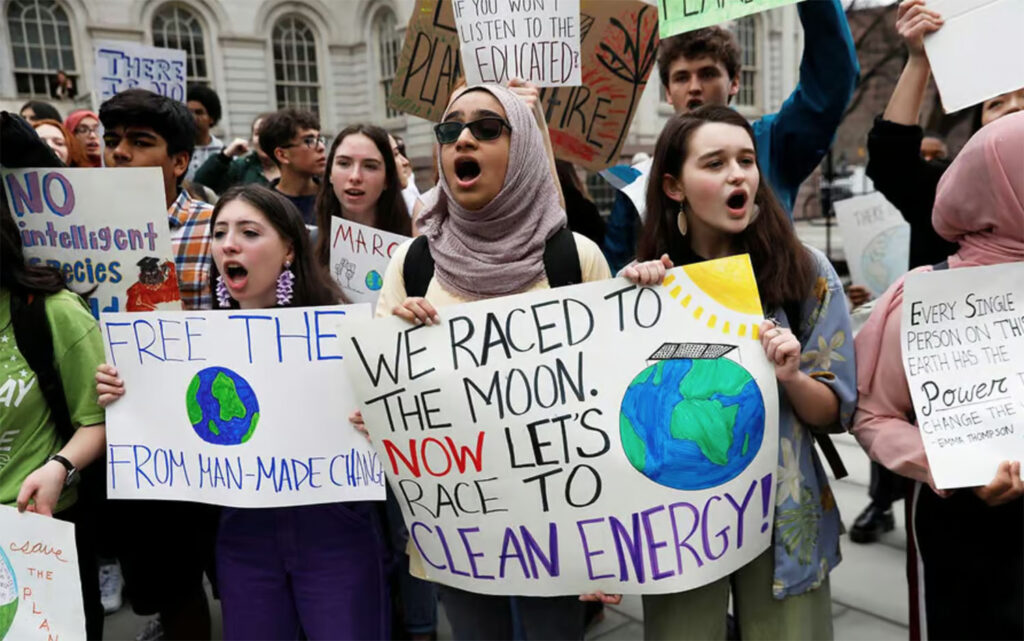
By Amy Durr, Alliance Communications Coordinator
Many of the most vocal climate scientists and activists are, by and large, angry. Their righteous anger is born from love of the natural world, the slowness of world-wide climate action, and an absurd amount of disinformation and denial. “While disruption and anger are valid responses to climate inaction, there are other ways of being an activist that are just as, if not more, important,” says Arielle Samuelson, a writer for HEATED, a newsletter “for people angry about the climate crisis.” The piece goes on to point out how to be a hopeful voice for climate action:
“[Fear is] not something that can sustain us as we seek to address climate change over many years and decades. So I approach the problem by centering hope, community care, and joy. We don’t have to always frame the climate crisis as a story of loss and despair and apocalypse. We can frame it as a story of opportunity and world building and community,” according to Mika Tosca, Assoc. Professor at the School of the Art Institute of Chicago and the first trans scientist to lead an American Geophysical Union plenary, its first-ever on the intersection of art and climate.
Here are some of Mika Tosca’s responses to Samuelson’s questions about the importance of art in igniting human imagination and moving people to action, the importance of scientists speaking out and how scientists were always philosophers, fully part of their culture:
Why artists should be involved in climate action
“We need to think about building a new and better world. That requires us to use our imaginations to explore potential possibilities, solutions, and outcomes. What better way to help us do that than art, which is able to reach the human imagination, the human psyche, in ways that traditional science hasn’t always been able to do? Data moves scientists emotionally, but data doesn’t move the average person emotionally. Art is really effective at that.”
Should scientists remain neutral, and only use their voice on their personal time?
“I just really fundamentally disagree with that. I think that science is inherently political. It’s been politicized whether we acknowledge it or not. And it’s conducted by human beings. We are humans trying our absolute best to uncover the truth about big questions. So I don’t think it detracts from our work to also acknowledge that there’s something going on that’s a big deal, and we should do something about it…”
“If you look at your history, science wasn’t always like this. Scientists were philosophers, they were artists. And if you look in other cultures, especially indigenous cultures, the distinction between scientists and everybody else isn’t so stark. It’s really a Western Global North phenomenon.”
